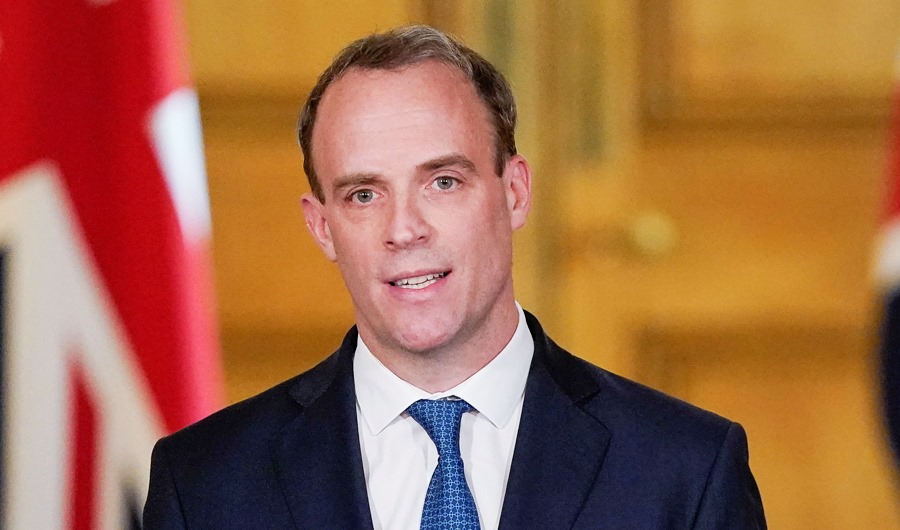 Photo of UK Foreign Secretary, Dominic Raab,
Photo of UK Foreign Secretary, Dominic Raab,
Tensions between the UK and China rise after UK Foreign Secretary, Dominic Raab, criticised China over “gross and egregious” human rights abuses against its Uighur Muslim population in Xinjiang and recent crackdowns on protests in Hong Kong.
It is suspected that China has detained nearly a million Uighurs in ‘re-education camps’, believed by some to be concentration camps. China, however, asserts that such claims are “fake accusations” and the mentioned camps exist for perpetrators of terrorism which includes separatist violence in Xinjiang.
In a recent BBC interview, Chinese ambassador, Liu Xiaoming, was shown anonymously posted drone footage that had surfaced amid recent allegations which captured hundreds of blindfolded and shackled men being transported from what is believed to be Xinjiang in August of 2019. In response, Xiaoming stated that “I do not know where you got this videotape - sometimes you have a transfer of prisoners, in any country.”
China also asserts that claims of mass sterilisation of Uighur women through a ‘ruthless’ forced birth control programme is untrue, claiming Chinese government policy to be “strongly opposed to this kind of practice” and that the Uighurs live in “peaceful and harmonious coexistence with other ethnic groups”.
The UK has decided to suspend its extradition treaty in response to the draconian new security law in Hong Kong which threatens Hong Kong’s legal autonomy and seeks to curb anti-government dissent.
There have been growing calls for the UK to impose sanctions on the Chinese officials that have been accused of being responsible. While Raab, has implied that the UK may not take such action, the Chinese ambassador has apprised that any sanctions will be met with a “resolute” response.
Read BBC News, the Guardian.
We need your support
Sri Lanka is one of the most dangerous places in the world to be a journalist. Tamil journalists are particularly at threat, with at least 41 media workers known to have been killed by the Sri Lankan state or its paramilitaries during and after the armed conflict.
Despite the risks, our team on the ground remain committed to providing detailed and accurate reporting of developments in the Tamil homeland, across the island and around the world, as well as providing expert analysis and insight from the Tamil point of view
We need your support in keeping our journalism going. Support our work today.
For more ways to donate visit https://donate.tamilguardian.com.

